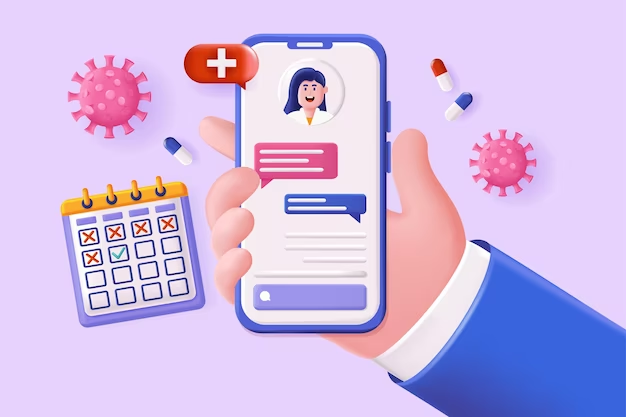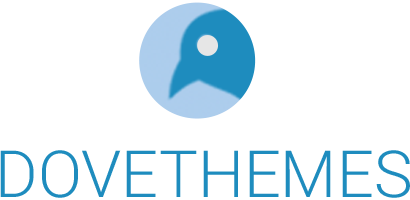In today’s digital era, technology is transforming every industry, and healthcare is no exception. Hospital management apps have emerged as powerful tools that are revolutionizing the way healthcare is delivered. These apps offer a wide range of features and functionalities that streamline patient management, enhance staff efficiency, and improve overall operational efficiency.

In this blog, we will explore the benefits of hospital management apps, real-world case studies, key features, implementation challenges, future trends, and the overall impact of these apps on healthcare delivery.
Benefits of Hospital Management Apps
Healthcare app development company has designed the app with so many features. Let’s explore its benefits:
Streamlined Patient Management:
- Appointment scheduling and management: Hospital management apps provide patients with the convenience of booking appointments online, eliminating long waiting times and enhancing patient satisfaction.
- Electronic health records (EHR) management: These apps enable healthcare providers to maintain and access patient records electronically, ensuring accurate and up-to-date information is readily available.
- Patient communication and engagement: Hospital management apps facilitate secure and direct communication between patients and healthcare providers, enabling better engagement, appointment reminders, and post-visit follow-ups.
Efficient Staff Management:
- Staff scheduling and shift management: These apps automate the process of scheduling and managing shifts, ensuring optimal staffing levels and reducing administrative burdens.
- Task assignment and tracking: Hospital management apps allow healthcare professionals to assign tasks, track progress, and collaborate effectively, leading to improved teamwork and patient care.
- Improved communication among healthcare professionals: These apps provide secure messaging platforms, enabling real-time communication among doctors, nurses, and other healthcare staff, enhancing coordination and response times.
Enhanced Operational Efficiency:
- Inventory and supply chain management: Hospital management apps enable better management of medical inventory and supplies, ensuring optimal stock levels, reducing wastage, and minimizing delays.
- Billing and revenue management: These apps automate billing processes, ensuring accurate invoicing, faster claim submissions, and improved revenue management for healthcare providers.
- Analytics and data-driven decision-making: Hospital management apps generate valuable data insights, empowering healthcare administrators to make informed decisions, identify bottlenecks, and implement process improvements.
Key Features and Functionality of Hospital Management Apps:
Hospital management apps offer a wide array of features tailored to the needs of healthcare organizations. Some key features include:
1. Patient-facing features:
- Online appointment booking and rescheduling
- Access to medical records and test results
- Prescription refills and medication reminders
2. Staff-facing features:
- Shift management and schedule optimization
- Communication and collaboration tools
- Performance tracking and analytics
Challenges and Considerations
In today’s fast-paced world, hospital management apps have become increasingly popular due to their ability to improve patient care, optimize operations, and ultimately, save time and money. However, their adoption has not been without challenges. One of the biggest hurdles to implementing these apps is resistance to technological change from staff members who may be hesitant to learn new systems.
Another challenge could be the cost of implementation. Despite these challenges, there are strategies that hospitals can use to overcome them. These include effective training and support, highlighting the benefits of adopting the app and offering incentives to staff members who actively use it. As technology continues to evolve, the healthcare industry must also adapt and embrace it to enhance the quality of care for patients.
While hospital management apps bring numerous benefits, their implementation comes with certain challenges. It’s important to address the following considerations:
- Data security and patient privacy concerns
- Integration with existing hospital systems
- Training and adoption challenges for staff members
- Cost Implications and Return on Investment (ROI)
Future Trends and Innovations in Hospital Management Apps
Hospital medical app development continues to evolve, and several trends are shaping their future. Some notable trends include:
- Artificial Intelligence (AI) and Machine Learning (ML) applications
- Internet of Things (IoT) integration for remote patient monitoring
- Telemedicine and virtual consultations through the app
How AI is being used in hospital management apps
The healthcare industry is always looking for ways to become more efficient, and artificial intelligence (AI) may be the solution they need. Hospital management apps are now utilizing AI to improve their systems and save valuable time and money. With AI, these apps can automate tasks like scheduling and inventory management, which were previously done manually. This not only frees up staff time but also reduces the risk of human error.
Additionally, AI can analyze patient data and provide insights to help doctors make more informed decisions about treatment options. The implementation of AI in hospital management apps is a game changer for the industry, promising to revolutionize the way healthcare is managed.
Conclusion
Hospital management apps are transforming healthcare delivery by streamlining patient management, enhancing staff efficiency, and improving operational processes. These apps have demonstrated remarkable benefits in real-world case studies, and their future looks promising with ongoing technological advancements. It’s crucial for healthcare organizations to embrace digital transformation by adopting these apps and harnessing their full potential to deliver high-quality care and improve patient outcomes. The journey towards a digitally empowered healthcare system begins with embracing the power of hospital management apps.
